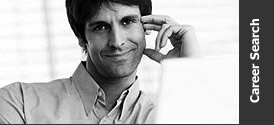
Candidate Toolbox

Interview Blunders Often Culprit
For Missed Opportunities
By Andrea Coombes
Job seekers who agonize over their resumes and cover letters might consider working on their interview skills instead.
About one-third of executives said job candidates make the most mistakes during the job interview, according to a survey of 1,400 chief financial officers by Robert Half International, the staffing and consulting firm in Menlo Park, Calif.
Interview blunders range from the obvious faux pas -- arriving late -- to not knowing enough about the company and position to which you're applying, said Paul McDonald, executive director of Robert Half Management Resources, a division of Robert Half International.
While interview skills are clearly important, that doesn't mean job-seekers can ignore their resumes: 21% of the executives said job applicants make most mistakes on resumes, while another 9% said cover letters are a major source of mistakes, and 9% said reference checks.
In the survey, the finance executives were asked "in which of the following job application areas do you feel candidates make the most mistakes?" While the survey was limited to finance executives, McDonald noted they often have responsibility for a broad spectrum of employees, including those in accounting, taxes, human resources, and information technology.
Another interview error: Applicants with too much attitude, he said.
"Having a bad attitude and appearing arrogant is very common. The interviewee wants to come off as very knowledgeable, but it's over-done and they forget that they're interviewing for a job where they're going to be, usually, the subordinate" of the interviewer.
Also, consider your body language. The following are common interview blunders, McDonald said: avoiding eye contact, a weak handshake, appearing defensive by crossing your arms.
Finally, wear the right clothes, and that means a suit if you're not sure.
"It's better to be slightly over-dressed than under-dressed. If your interviewer is dressed in a sports jacket and you show up in a suit, everyone understands," McDonald said.
Start the interview with a question.
Often, job applicants don't want to appear uninformed, so they'll ramble in response to questions, McDonald said. "There are so many people that, when asked a question, they forget the question. They get sidetracked," he said.
"Make sure you answer the question as asked. If you don't know, say 'I really don't know, but I could research that.'"
To ensure informed answers, research the company and the job position before the interview.
Then, as the interview starts, find out what skills the company is looking for, said Mark Mehler, a principal at CareerXroads, a recruiting technology consulting firm in Kendall Park, N.J.
"What happens most times is the interviewer says 'tell me about yourself, tell me what you're good at,' and you don't know what the target is. You want to know what the bull's eye is," Mehler said.
For instance, as you sit down, say: "I'm really interested in this job. I'd like to match my skills with what your needs are. Can you please tell me what the keys are to this position?" Mehler suggested. "Say it in a nice way. There's no crime in asking. Otherwise you're shooting blanks."
Network work
Mehler says there are worse mistakes, particularly those that prevent you ever opening the door to that interview. The biggest one: Applying for a job without a referral from a company employee.
"The biggest mistake job seekers make is sending their resume in without a friend inside the company walking it in to the hiring manager or the recruiter," Mehler said.
"Each job gets hundreds of responses. Depending on the company, 35% to 60% of all jobs are filled by a referral," he said, citing the annual CareerXroads Source of Hire survey of companies.
"My odds of getting hired by an employee referral are so much higher than just being one of the 200 to 500 that come in over the transom. You'd have to be crazy not to go find a friend," Mehler said.
To find such a friend, go to your college alumni network, professional associations, trade groups, and social networks such as LinkedIn.
Also, "ask your children where their friends' parents work. Ask your children's teachers where the other parents work," he said. Even ask the mail carrier whether any of your neighbors work at the company, he suggested.
"All you want is a name," Mehler said, adding that some acquaintances might be happy to walk in your resume if their company pays bonuses for employee referrals. If the acquaintance doesn't know you or your work, they should be honest with their employer.
They could say: "I really don't know this person, they're a neighbor. That's all I know," Mehler said. Even that type of referral is better than none, he said.
Resume flaws
Another big mistake, Mehler said, is not targeting your resume to each job. "You have to be specific: These are the things that match what they're looking for," he said.
"If I'm applying for an accounting job and I did accounting three jobs past, it has to be an accounting resume," he said. "Detail your resume to your accounting experience in those three jobs."
McDonald agreed. He also noted another common problem: Resumes with typos and grammatical errors.
Also, keep the resume to no more than about 1-1/2 pages long, he said.
When providing references, make sure it's someone who knows your work, McDonald said. References are ineffective if, say, they're friends who don't know your work.
"Provide references that are individuals that supervised you in your last employment, that know the quality of the work that you produced," McDonald said.




